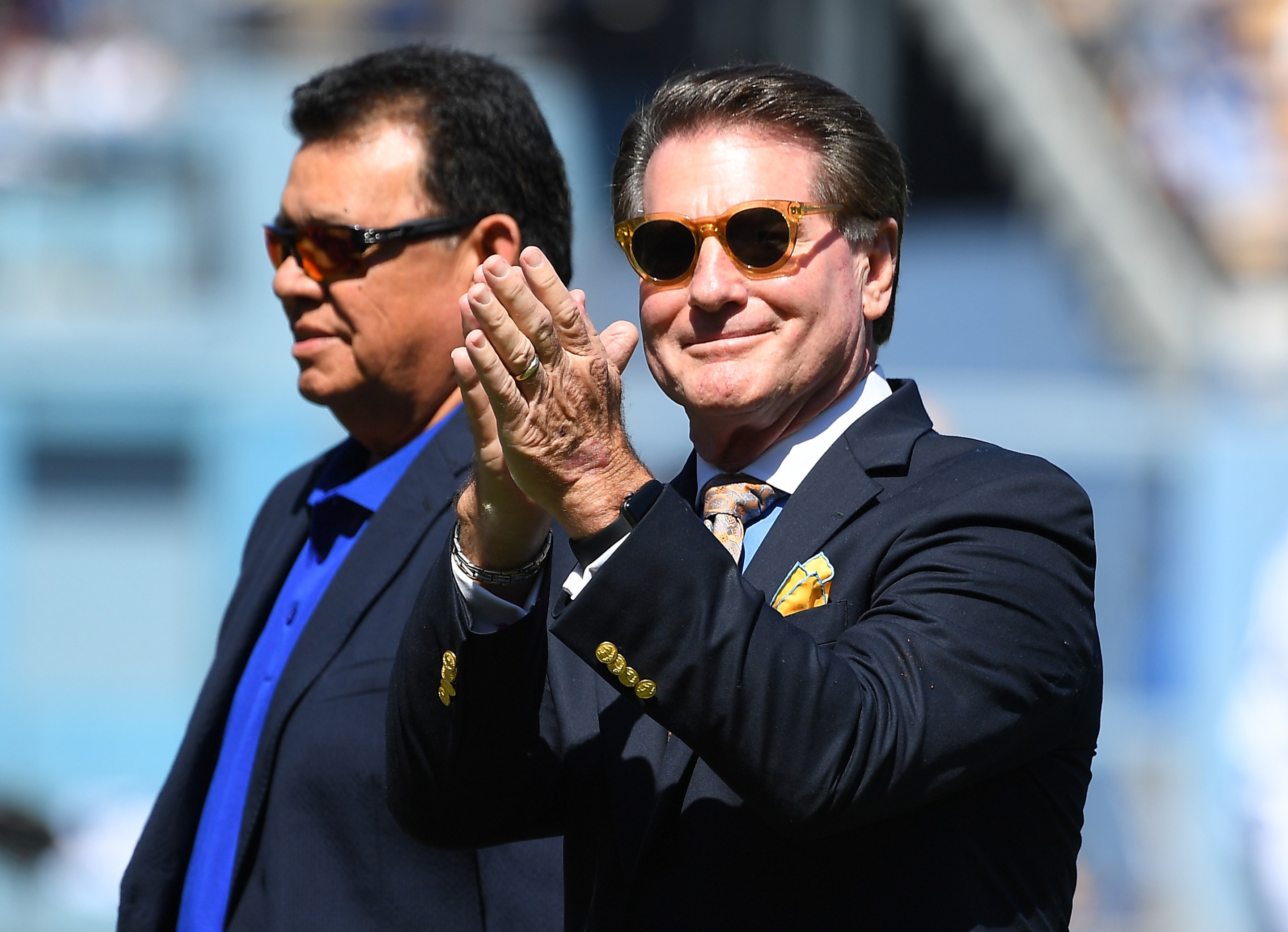Not enough people, when confronted with an idea as benighted as "Steve Garvey For U.S. Senate," ever bring themselves to the question: "Who asked for this?" It's important this time, though, and not just because a country only gets so many senators—less than four active rosters’ worth. Most of them don’t do much except bloviate while photosynthesizing, and while Garvey certainly won’t be joining their number, he has more Silver Slugger awards than all of them combined. It’s important because the answer to who-asked-for-this is almost surely, "Nobody except Steve Garvey, and whatever petroleum-industry operative gave him the idea in the first place." This is often the case in vanity campaigns—there was no public groundswell for Caitlyn Jenner’s candidacy, either—but as with so many things about Garvey, it just seems more obvious for him being involved.
Garvey was the caricatured All-American Guy from an era when "All-American" was code for "white, clean-cut comic book figure." In his years as the first baseman in the last great era of Los Angeles Dodgers baseball, he was lionized as the son every fan never had; he was good, too, an MVP once and an All-Star for eight consecutive seasons. He was the baseball bridge between Willie Stargell and Keith Hernandez, and a handy symbol for all the old verities of honor, character, and fidelity at a moment when those concepts were looking especially shopworn—at least until Garvey blew up his marriage by running around and turned those verities into punchlines. His caricature became that of a weak-sauce hypocrite, the creator and defender of a public image that he couldn't maintain.
And that is why the idea of him touring California gauging interest in Garv The Senator—that, weirdly or maybe not, was one of his nicknames as a player along with Mr. Clean, and neither of them were always honorifics—makes sense. But it makes the most sense within the template of why people no longer value politics as a public calling. His announcement on Tuesday that he intends to run as a Republican for the seat vacated by the death of Dianne Feinstein makes perfect sense if you think Washington is running low on superannuated vapidity. In his campaign announcement, Garvey announced that it was “time to get back in the game.” He’s 74—as good a time to get into a game as any, in the United States Senate and basically nowhere else.
Which brings us back to "Who asked for this?" Is Steve Garvey still a name that people revere nearly four decades since the end of his playing days? Never mind that he has never run for anything, has no public policy experience, and is an older and equally unimpressive version of Herschel Walker, the former running back who ran for the Senate in Georgia at the behest of Donald Trump and failed spectacularly. There will always be celebrities who need validation in the waning years of their fame, and would-be kingmakers who thumb through old copies of Who's Who 1985 in hopes of finding former athletes with no other notations on their CVs to bluff past a gullible electorate. A few of these candidates, like Alabama senator Tommy Tuberville, even succeed electorally, generally to the detriment of the nation as a whole.
So no, nobody did ask for Steve Garvey, not in a political context anyway. Nobody thought to do it, because the man had never emitted an idea worth making him a consideration, even in the current shameful state of electoral politics. His political platform is his first baseman's glove and some vague noises about common sense; he hasn't had a putout in 36 years, and even if you think his baseball resume is sufficient for the idolatry of Washington, he never convinced his mostly likely defenders, Hall of Fame voters, to give him more than 42 percent of the vote in 15 years on the ballot. Dusty Baker has a better chance, and he's actually run clubhouses. Garvey, on the other hand, was a name of note when 80-year-old voters were 30-year-old baseball fans, and his biggest years coincided with Ronald Reagan's.
Steve Garvey is, in the final analysis, someone who was famous half a century ago and ... yeah, that's about it. That might appeal to people who wish the world could be more like what Garvey pretended to be all those decades ago, but he is otherwise a ghost of fame. He's just one more set of chin-and-shoulders for that diminishing shard of the electorate that romanticizes an exclusionary past, is afraid of the present, and not invested in the future. It's just a matter of time, in a state that is decidedly blue, before Garvey comes to the harsh and expensive realization that no, nobody did ask for this. Whichever invertebrate convinced him otherwise will learn the same lesson soon enough.





